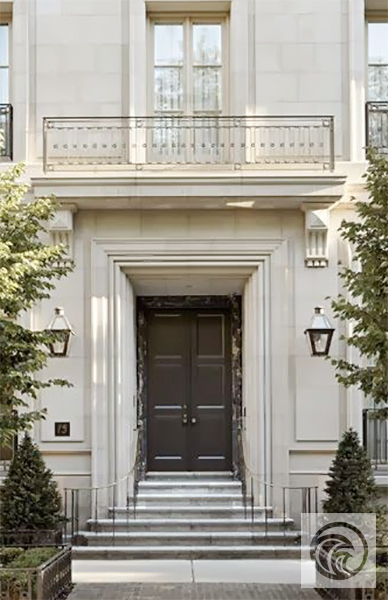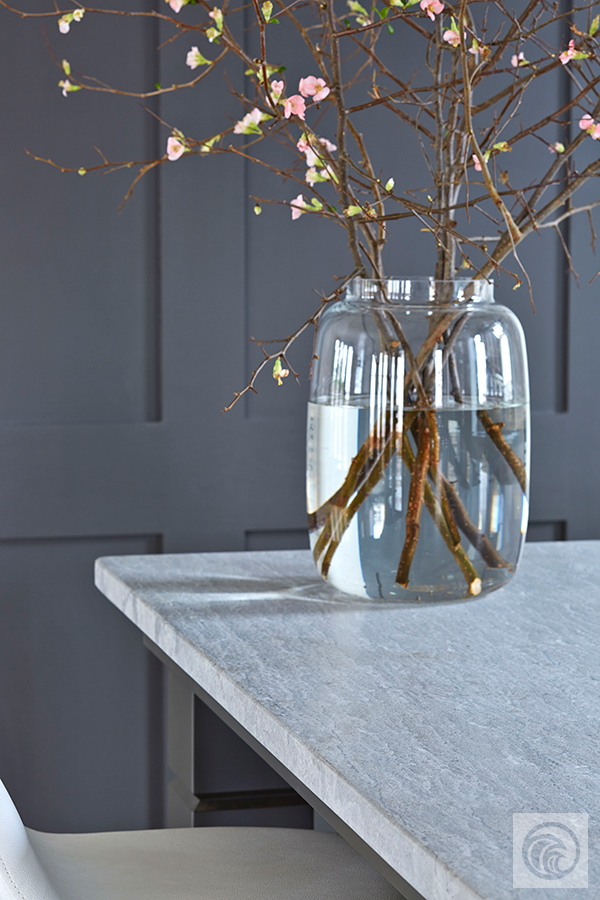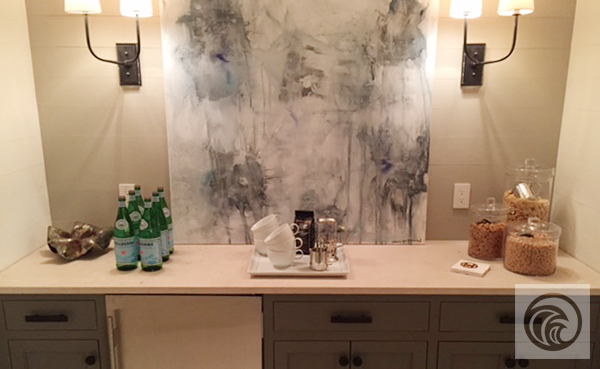What is limestone?
Limestone is a natural stone that can be found in many countries around the world. It is an organic sedimentary rock which means that it is formed by the accumulation of shell, coral, and algae, or by direct crystallization from water. Because of this, some types of limestone may contain small fossils and marine skeletal fragments that give the stone a natural element.
Where can limestone be used?
Popular uses include fireplaces, backsplashes, interior and exterior wall cladding, and flooring. The static coloring among slabs makes it a popular choice for both current and future projects that contain expansion plans.

How do I care for limestone?
Limestone is usually more porous than granite or marble, so it needs to be sealed thoroughly to prevent the absorption of liquids. Always have limestone sealed as part of the initial installation process, and be sure to re-seal it at regular intervals. Using the right cleaners and sealers will help keep your limestone in very good condition for a long time.

What does limestone look like?
Limestone offers a variety of different colors, most commonly neutral tones such as grey, beige, tan or brown. Depending on where it's quarried, some limestone will contain visible fossils, telling part of the story of how the stone formed. Limestone is available in a variety of different slab sizes and thicknesses, as well as different finishes including polished, honed, flamed, bush hammered and brushed.

What are the pros and cons of limestone?
Limestone has been a popular stone for centuries, due to its versatility with different architectural styles, its neutral color palette, the ease of shaping and its durability. Limestone was used in the outer covering on the Great Pyramid in Egypt. Limestone can be suited to many different applications, with softer stones being used for backsplashes, bathrooms or fireplace surrounds, and limestones with more durable qualities being suitable for countertops.
Limestone needs to be sealed, as it can etch when exposed to acids in cleaning products or some kitchen ingredients. If you're planning to use limestone for a countertop, some varieties of the stone are denser and therefore more suited to this application than others. For example, Saint Clair is an American limestone quarried in Oklahoma. Due to its high density, it acts more like a marble than a limestone.
When selecting limestone for your home, the most important consideration is that you choose the right variety for the functionality you need. Also, be sure to take good care of it by sealing, maintaining, and cleaning it properly to keep it in great condition.


Thank you for the post and information on limestone. I had no idea limestone could be used in fireplaces. I wonder if it holds up well under heat or if it just looks good on the outside?
Hi – We’re glad you found our post informative.
Great question!
Limestone has been used in fireplaces for thousands of years (see: Europe) and continues to be a popular choice even today. This natural stone varies in price, based on many factors, such as country of origin. Limestone can range in hardness affecting its ability to withstand scratching, chipping and etching which can can occur over time under normal wear and tear. We highly recommend that customers research the hardness, porosity and finish of the type of limestone prior to starting any project.
Many factors come into play such as size and depth of the firebox, as well as the design of the fireplace when determining if a certain limestone is acceptable for the application.
We would be happy to answer any additional questions you may have on limestone or natural stone fireplace applications.
Suzanne Morosoli
General Manager